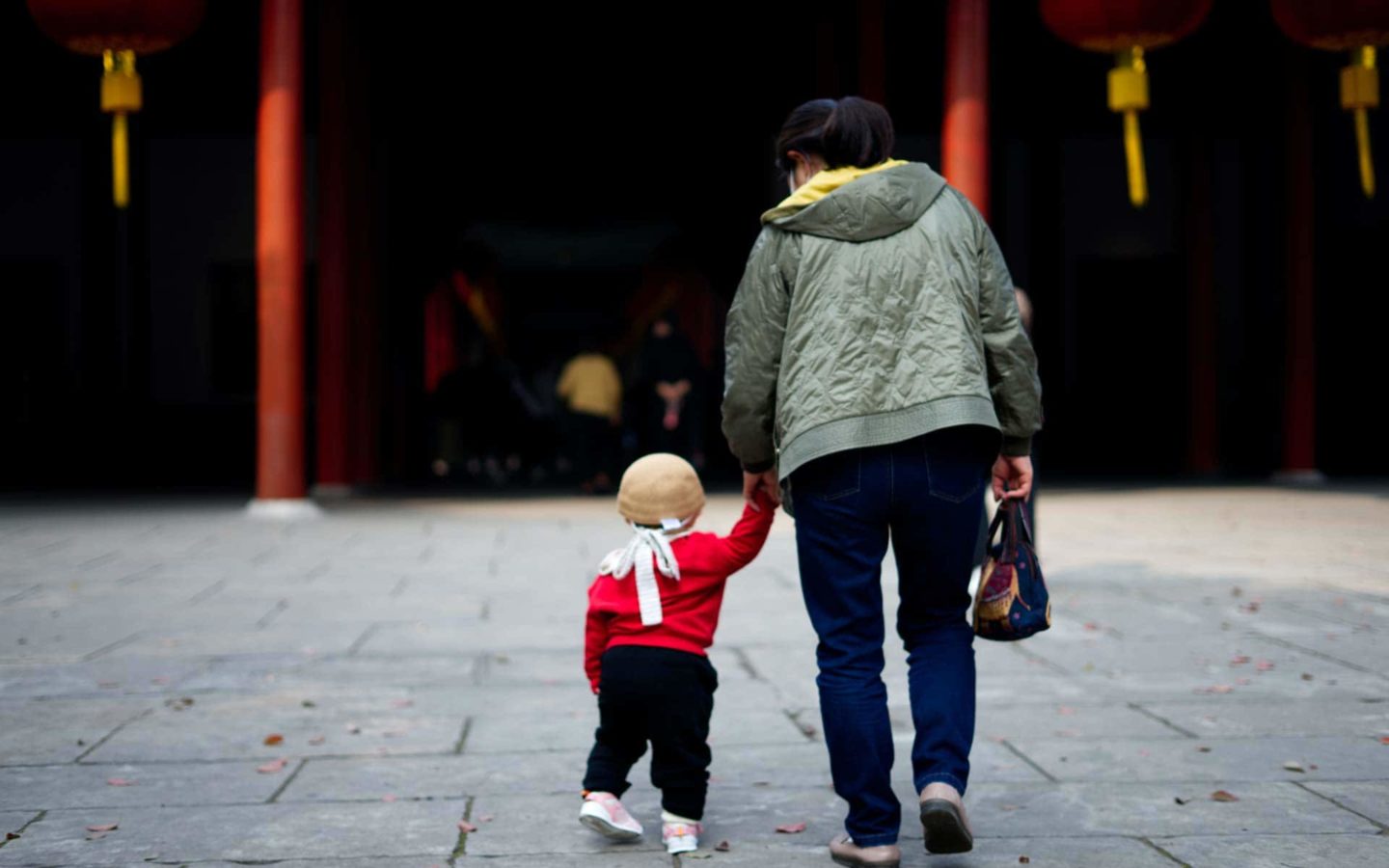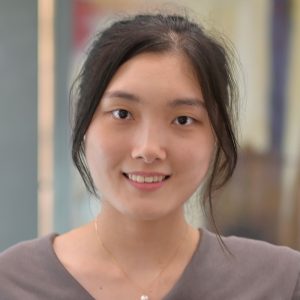The glory and stress of Chinese rural migrant grandparents
In China, grandparents’ role in the care of their grandchildren is gaining increasing attention and significance, due to demographic changes which include the ageing of the population and a low fertility rate. Together with other changes in family structures, these factors are influencing the evolution of both family relations and childcare practices.
Grandparents in China play an essential role in childcare not only as a result of these demographic changes but also due to internal migration and its consequences for norms and expectations around familial care. It is widely assumed among older people in rural China that looking after their grandchildren is a natural obligation. Influenced by the strong familism inherent in Confucian culture, families often arrange childcare through intergenerational cooperation. In rural families, grandparents commonly look after their grandchildren on a daily basis, especially when grandchildren are under school age.
Despite the remarkable contribution that grandparents in rural areas make to childcare arrangements within their families, in modern China rural-to-urban migration means that many grandparents face considerable stress and uncertainty in doing so. Their experience of providing childcare is significantly impacted by China’s hukou (household registration) system and related social policies.
‘hukou’: invisible borders of internal migration
The hukou system is a mechanism whereby the Chinese state allocates welfare benefits and land to individuals based on the person’s urban or rural hukou. Introduced in the late 1950s as a system for promoting industrialisation and controlling rural-to-urban migration, the hukou system has continued to have a far-reaching influence even after China’s ‘opening-up’ policies in the 1980s. Although some of the tightest controls on rural hukou holders’ ability to move to, and work within, the cities have been lifted, the hukou system still results in divisions between rural and urban people by allocating them different welfare benefits and public resources, including educational and healthcare services.
In general, those with an urban hukou can access much better public resources and welfare benefits than those with a rural hukou. Rural hukou holders are entitled to collectively owned rural homesteads and have the right to use a limited area of land (depending on the size of their household). However, the public services and welfare benefits available to rural hukou holders are much more limited than those available to their urban counterparts.
The ‘talents-preferred’ and ‘points-based’ hukou transformation procedure is a major barrier that prevents most older migrants from transforming their rural hukou into an urban hukou. Besides, for most migrants, housing and living costs in Chinese cities are unaffordable. The threshold for transforming hukou and settling down in the cities thus represent ‘invisible borders’, which means that rural migrants’ internal migration to the cities is necessarily temporary. This results in significant challenges for rural migrants in arranging childcare and is a particular problem for older rural migrants, many of whom shoulder a double burden of childcare responsibilities and financial difficulties.
‘Grandparents-on-duty’ and migrant grandparents
China’s one-child policy, implemented between 1979 and 2015, has had a lasting impact on family relations and childcare practices in China. Limiting most Chinese couples to a single child over four decades profoundly changed the structure of family life. Traditionally, filial piety was the guiding value in Chinese family culture, emphasising the senior generation’s authority and adult children’ obligation to care for their parents. The past four decades, however, have seen a transformation of most families’ focus, from the senior generation to the youngest one.
An important outcome of this is that many grandparents and parents now invest their family resources very heavily in the family’s only child. The long-term happiness and wellbeing of grandparents and parents depend crucially on the success and happiness of the child in their family. This has produced a downward flow of family resources, from senior generations to the youngest one, summarised by some scholars as ‘descending familism’.
In China, many grandparents regard looking after their grandchildren as a natural obligation. The patrilineal tradition in Chinese culture requires paternal grandparents to take on more childcare responsibilities than maternal grandparents; some even regard caring for their young grandchildren as another job after retirement.
When grandparents provide childcare for their adult children, multi-generational co-residence is common. Many grandparents move to their adult children’s homes to provide full-time childcare, especially when children are young. Studies have shown that around half of older migrants in China migrate across provinces to take care of their grandchildren.
In rural-to-urban migrant families, grandparents thus play an essential role in filling a care gap, as well as contributing to their adult children’s family income, although patterns of grandparental migration to care, and these grandparents’ roles in the cities, are very different from those of urban middle-class families.
Three types of rural grandparents’ roles in the cities
To enable them to provide childcare, many grandparents from rural areas have moved to the cities to live with their adult children. Compared to grandparents from urban middle-class families, who can usually retire with a pension that gives them a reasonable standard of living, grandparents who have migrated from rural areas typically remain active at the lower end of the urban job market.
My PhD fieldwork in two cities in Guangdong province in 2023 involved interviews with parents and grandparents, which revealed three patterns of childcare provision by rural grandparents. In the first pattern, grandparents had moved to the city temporarily and were looking after their grandchildren full time. In these cases, the children were usually very young and thus needed full-time care; their mothers’ higher income and willingness to work full time had resulted in the grandparents – the grandmother in particular – replacing a mother’s traditional role and becoming the main carers of their grandchildren. The grandparents who were providing full-time childcare often had limited experience of working and living in big cities and found it challenging to adjust to urban life.
In the second pattern, grandparents were not only looking after their grandchildren but were also doing paid work. High living costs in the cities had resulted in huge financial pressure for some rural migrant families. To raise their family’s income, some grandparents had taken jobs with flexible work schedules, in many cases under zero-hour contracts with no job security. These grandparents were performing labour market work in the gig economy while also providing much-needed care for their grandchildren, who were commonly of school age. These families often faced significant financial pressure.
In the third pattern, both grandparents were working full time, and the children’s mother was staying at home to look after her young children. This pattern seemed to arise from mothers’ views and decisions, the mother often feeling she was better qualified than the grandparents to care for her children. These grandparents seldom looked after their grandchildren but, along with fathers, were important as breadwinners within the family household.
Childcare arrangements among grandparents and parents are thus diverse, flexible and dynamic; they depend mainly on childcare needs, mothers’ choices about employment and families’ financial circumstances. Regardless of these diversities and dynamics, almost all grandparents in my study were taking the initiative and making compromises to ensure their grandchildren received the best care. As one grandparent said, ‘We do what is best for the children and the family’. This process entails ongoing negotiation about the division of caring labour and familial income, with the aim of creating better material and emotional support for the children.
Temporality of migration and worries about elderly care
Rural grandparents’ internal migration is characterised by its temporality and for many, great uncertainty, due both to their disadvantaged situation in the labour market and to the changing childcare needs of their families. For many grandparents, migration to the city was a temporary decision, driven by childcare demands and financial difficulties. Migrant grandparents’ limited access to urban welfare benefits and public services negatively affected their wellbeing and resulted in feelings of being excluded in the cities.
In my study, most migrant grandparents said they expected to return to their rural hometown when they could not find paid work in the city, or when their grandchildren had to return to their hukou region for education. The current education policy makes it difficult for migrant children to receive free education in urban public schools. In addition, migrant children are not eligible to take the college entrance examination (usually taken at age 18) outside their hukou province.
The uncertainty and temporality of grandparents’ migration were also a source of significant anxiety and worry about their own eldercare needs. Their precarious working conditions meant most migrant grandparents were ineligible for a pension sufficient to live on. Their reduced income in later life means they will face further financial pressure when they return to their rural hometown. In addition, the inadequate healthcare and limited eldercare services in rural areas make it difficult for ageing grandparents to live independently while their children still need to work in the cities.
By tradition, filial piety requires adult children to accompany and look after their ageing parents; however, rural-to-urban migration makes this infeasible for many rural families. Despite many grandparents’ significant contribution to their adult children’s childcare, this intergenerational cooperation on childcare cannot easily be reciprocated. Physical distance and the pressures parents face in raising their children make it very challenging for them to fulfil filial piety obligations by providing eldercare.
Summary
Rural-to-urban migration in China is having increasingly multi-generational effects, driven mainly by childcare needs and by the hope of providing the best familial resources to help in raising children. Rural grandparents are often proactive in migrating to cities, where they play an essential role in childcare and in improving their adult children’s financial situation. This intergenerational cooperation on childcare demonstrates strong solidarity and dynamic relations between rural grandparents and parents. It is evident, however, that migrant grandparents bear a double burden, arising from childcare needs and the precariousness of the process of rural-to-urban migration. Institutional barriers caused by China’s hukou system significantly hinder rural-to-urban migrant families’ freedom to arrange childcare and are a source of stress regarding how migrant grandparents’ eldercare needs will be met.
About the author
Yingzi’s PhD research is focused on the family care provided by elder grandparents in migrant workers’ families, who migrate from rural area to big cities in China, and how inter-generational cooperation, migration and public policies affect the care equality and carers’ wellbeing.

